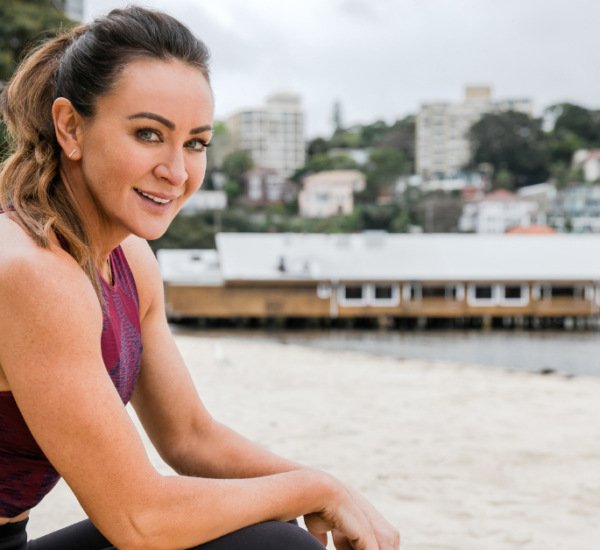You can try, try and try again, but sometimes pregnancy can be elusive. Here’s some reasons why it’s possible that you can’t get pregnant, and what you can do about it.
While studies show that 85 per cent of couples having regular, unprotected sex get pregnant in the first year of trying, the rest aren’t so lucky. Many end up baffled, wondering where they’ve gone wrong – and worried that the only way they’ll have a baby is via fertility treatments.
Comparing yourselves to other couples who may do all the ‘wrong things’ but have no problem falling pregnant isn’t helpful, explains Dr Simone Campbell from Brisbane’s City Fertility Centre.
“We all know of couples who are overweight and get pregnant easily,” says the fertility specialist. “Or couples who drink a lot or smoke a lot or who are older, and yet get pregnant easily. But I say to my patients, if they were you, you wouldn’t be sitting in my room right now asking for advice.”
But don’t run off to the nearest fertility clinic just yet. Instead, sit down with your partner and answer the five questions on our get-pregnant checklist.
1. Do you… need to lose weight?
If you’ve ever thought being heavier might be impeding your ability to conceive, you’d be right. Studies show the ideal BMI to conceive is between 20 and 25. Getting into a healthy weight range is key – and not just for actual conception, but for pregnancy and the future health of your child.
Calculate your BMI with our BMI Calculator
“When it comes to conception, overweight women can stop having periods,” says Dr Campbell. “Carrying extra weight can also cause irregular ovulation. Plus, if either one of the partners we’re treating is overweight, the chance of conception is significantly reduced. In IVF settings, increased weight in women decreases pregnancy rates. And if the woman is a normal weight but the guy is overweight, their chances are also lower because of the sperm damage that happens with obesity.”
If you do get pregnant when you’re overweight, the risk of complications – miscarriage, diabetes and premature delivery – is significantly higher, she adds, and it’s also worthwhile considering the impact your weight can have on your kids.
“We know there are metabolic changes that happen during pregnancy that predispose the baby to having metabolic syndrome and diabetes when they’re older. It’s so important that, as a society, we all try to get healthier.”
2. Do you… smoke?
This is number one on the list for both men and women, says Dr Campbell. “Smoking obviously affects your general health, but we know it can affect the lining of the uterus, making implantation an issue. Plus, smoking releases a lot of toxins and it’s just not maximising the environment the embryo is going to be trying to implant into.”
Also read: 10 Steps to change a habit
For men, smoking is extra concerning as DNA damage in sperm is often a big factor in infertility and can be overlooked.
“Sperm is created in the testes but stored for three months in the epididymis next to the scrotum,” says Dr Campbell. “And anything you do to your body in that time is going to affect the sperm, including every cigarette you’ve smoked. So, the sperm you ejaculate today has been exposed to every oxidative stress your body’s been under for the past three months.
Damaged sperm is less likely to result in pregnancy and if it does fertilise an egg, it’s less likely to make a nice embryo and more likely to end in miscarriage. We’ve got a good rate here of men stopping smoking, especially when we tell them exactly what smoking does to their sperm.”
Frequent ejaculation is very important as well, she adds. “Two to three times per week just to keep the sperm moving on. Plus, because sperm is stored for three months, any change you make now is not actually going to change your sperm health for 8 to 12 weeks.”
3. Do you… have sex at the right time?
If you’ve been trying to get pregnant for a while, you’ll know just how tiny that little window of opportunity is each month. Even if you’re having sex two or three times a week, as experts suggest, the chances of egg meeting sperm are surprisingly low.
“You need to learn about yourself and your own cycle,” says Dr Campbell. “Because while you may have read that you need to have sex on day 14, if you actually ovulate on day 19, you may miss that opportunity to conceive.”
How can you know when you’re ovulating? The Billings Ovulation Method teaches you to track changes in your cervical mucus. Or you can use an ovulation kit, which pinpoints the surge in hormones you get 12 to 36 hours before you ovulate. Taking your temperature each morning before you get out of bed is another technique – but it isn’t as helpful, says Dr Campbell.
“The problem with temperature charting is that the big changes happen after you ovulate,” she explains. “So while your temperature chart can tell you that you’ve ovulated, it’s not so good at predicting when you will.”
She adds: “Eggs reliably last for 12 hours, and they can last for 24. Sperm reliably lasts three or four days, although it can last up to five. So if you’ve only got a day when the egg and the sperm are alive at the same time, there’s a good chance you’ll miss that if you’re not onto it. If you’re 25, having sex whenever is fine because when the egg and sperm meet they’re more likely to make a pregnancy. But if you’re 41, you’re fighting the numbers anyhow and you shouldn’t waste any opportunity.”
Also read: Genea’s Top tips for maximising future fertility
4. Do you… have PCOS, insulin resistance or both?
Certain hormonal conditions can hamper your attempts to conceive, such as insulin resistance and polycystic ovarian syndrome (PCOS). The two are often linked. “PCOS can impede your chances of getting pregnant mostly because it might stop you ovulating,” says Dr Campbell.
“Symptoms of PCOS classically include irregular or absent periods, being overweight, having insulin resistance, suffering from pimples or facial hair, and having a classic ‘ring’ of small follicles in the ovary. If you have regular periods, it’s unlikely you have it.”
If you do have PCOS and insulin resistance – and are overweight – studies show that losing as little as 5 per cent of your body weight can help your body start ovulating naturally again. “That’s absolutely proven,” says Dr Campbell. “You don’t have to get back into a normal weight range to necessarily have a chance at pregnancy, and it’s preferable to taking medication which may lead to multiple pregnancies – not a great option for a woman who’s overweight.”
5. Do you… keep putting parenthood off?
Of course, you can’t do anything about your age or when you’re ready for kids – or even when you meet the partner you want to have kids with. But biologically, there’s something to be said for getting your skates on earlier if you can.
In one study published last year in the UK journal Human Reproduction, a whopping 67 per cent of women and 81 per cent of men inaccurately believed that female fertility drops after the age of 40. The reality? A woman’s fertility starts to decline markedly between 35 and 39.
“Your 20s is your best time to try and get pregnant, but by 35 your fertility is dropping,” says Dr Campbell. “And while you may want to wait a few years, you don’t really know what [will happen with] your fertility, so if you want to have babies and you’re in a relationship, get on with it. Women who want to be reassured that they can put it off for the next five years – well, we can’t give them that.”
The problem, adds Dr Campbell, includes our changing society and the fact that many people just don’t meet the right person until they’re older – if at all. “Women don’t choose to be 35 or 39 without a partner and wanting children. It might not be the ideal and what you planned… but in many women, that drive to have kids is pretty strong.”
If you’re single or you’ve been trying for six months and you’re over 35, it can’t hurt to get some advice. “Looking at the statistics, a lot of fertility units have a pregnancy rate of about 40 percent if you’re under 38 and around 30 percent if you’re over 38. And coming to see a fertility specialist doesn’t necessarily mean IVF – it’s about maximising your chances in every way possible.”
Check out our story about our member Sophie, who fell pregnant after 5 years of trying: Sophie’s 12WBT Story: “12WBT Got Me Pregnant!”
















I would like to thnkx for the efforts you’ve put in writing this blog. I am hoping the same high-grade site post from you in the upcoming as well. Actually your creative writing abilities has encouraged me to get my own blog now. Really the blogging is spreading its wings rapidly. Your write up is a good example of it.
I’m 26 I’ve been trying for 6 yrs and still nothing the doc say I have pcos and all I want is a baby before I hit 30 it’s getting realy hard for me to feel with the realization that I may never have one and I’m running out of options
Hi Tina – Thank you for getting in touch with us. I’m sorry to hear you are having trouble. The first thing I would suggest you do is speak to your doctor, they will be the best people to guide you in your next steps.
If they suggest a lifestyle or weight loss change, 12WBT might be the program you’re looking for. Don’t hesitate to contact us at support@12wbtsupport.com
All the best,
Leila
12WBT Support Crew
I am twenty four years old and I am over weight. I have tried to loss weight but I have no luck. I am also trying to get pregnant I have been for four years. I got pregnant when I was 21 but I miscarried. What can I do I annoy with the man of my dreams and he wants children I am scared I can’t give them to him. All I have ever wanted in life is to be a mommy. I don’t want to let my husband down. Please help me
Hi there – I’m so sorry to hear about the difficulties you and your husband have been facing with falling pregnant. This must be very frustrating and upsetting for you indeed. This is something you’d need to discuss with your doctor or a fertility specialist, as they may be able to suggest some tests or provide further advice about options that may be available to you. Where 12WBT can be of assistance though, is in regards to weight loss if you’ve been advised that weight loss could help.
The 12WBT Program is a unique online exercise, nutrition and mindset program created by Australia’s favourite Personal Trainer, Mish. As a member of a 12WBT Round, you are supported by our team of experts and your 12WBT peers. We give you week by week access to inspiring content and practical tools and advice to help you achieve your goals during Pre-Season and the following 12 weeks.
Pre-Season for the June Round is currently underway and the round kicks off on Monday 13 June.
Now would therefore be an ideal time to start as you still have just over two weeks to catch up on and work through your Pre-Season Tasks.
Pre-Season is an invaluable part of 12WBT. The Pre-Season tasks are straight forward but very powerful, for example overcoming your excuses, and setting your goals. There is in fact an extremely strong correlation between members who complete their Pre-Season Tasks and the level of success they achieve on the program! They not only prepare you mentally and physically, but also form a solid foundation upon which you can build.
Michelle recommends that members refer to their Pre-Season Tasks regularly throughout the 12 weeks of the program, to help them stay on track and achieve success.
If you’d like to join us, please head to: https://go.12wbt.com/sign-up
Wishing you all the very best and I hope that we see you on board!
Leila
12WBT Support Crew
I am 29 yrs old.my marriage has been 4.5 yrs.but we are trying for baby for last 4 months but it does not work.is there any problem for having a too long gap.my period is regular.
Hi Mahbuba – I would definitely suggest speaking to your Doctor first and foremost. They will be the best person to advice you on next steps.
All the best with it,
Leila
12WBT Support Crew
Yes, smoking can affect both the unborn baby and mother. It increases breath problem and also increases lung cancer problem. if you want to live healthy and want to give birth to a healthy child then you have to quit it.
Hi, Im Sara,28. I was diagonised with pcos 4 years before. And I and my husband tried for baby for about 3 years, Im Little overweight. Just disappointed. what can i do? Im taking Metformin.
Hi Sara – I would definitely suggest speaking to your Doctor first and foremost. From there, you’ll have a better understanding of your next steps.
Hope it all goes well. 🙂
All the best,
Leila
12WBT Support Crew
hi im 33years old i have 1kid i lost 2 now im married 2yrs with my new husband we are triying to have a child but we failed what can i do
Hi Regina – I would definitely suggest speaking to your Doctor first and foremost, as they will have the best advice for you.
All the best,
Leila
12WBT Support Crew
hi i have been trying to have another child and i have been with this wonderful guy for 5 years and been having sex all the time and nothing happening my partner has 2 kids and hes 41 years old and i got 5 kids and i am 44 years old i don’t look it those please help me
Hi Tracey – I’m so sorry to hear of your difficulties in trying to conceive again Tracey. If you’ve addressed the blog points above without success then we’d recommend getting in touch with your GP or fertility specialist. Additionally, here are some more tips worth considering if you have a minute: https://www.12wbt.com/blog/fitness/geneas-top-tips-maximising-future-fertility/
Best wishes to you both!
Leila
12WBT Support Crew
Hi I’m Melissa. I need to know why I won’t be pregnant. Plz let me konw thanks
Hi Melissa – I’m sorry to hear this. I would definitely suggest getting in touch with your Doctor to explore this a little further. They would be the best point of contact for this type of question.
Hope it goes well 🙂
All the best,
Leila
12WBT Support Crew
hi!
I am 34 years old and newly married its 3rd month of marriage. we r trying to conceive but remain unsuccessful. my height is 4’11&weight is 63kg. my husband is off 120 kg n 6 height. he is 31 years old. he is a smoker. I want child desparitly. plz suggest me something
Hi Asawari – Congrats on your recent marriage! Everyone is different and it can take some time to conceive. We suggest that you look at getting you and your husband (it takes two to tango!) as healthy as possible – regular exercise, eating a variety of wholesome foods (fruit, vegetables, wholegrains, legumes, lean meat, dairy products, etc.), stop smoking (or reduce) and reducing stress where possible. It’s also a good idea to see your GP for a general check up and to talk about what else you can do.
For some more information, have a look at these links:
https://www.12wbt.com/blog/community/cant-get-pregnant-5-possible-reasons-why/
https://www.12wbt.com/blog/fitness/geneas-top-tips-maximising-future-fertility/
All the best!
Leila
12WBT Support Crew
Hi,
im 32 years old. Iv always wanted my own family.
Me and my partner have been trying for a number of years. At the age of 22 I lost my baby at 15 weeks, we have tried ivf also including artificial insemination for a number of years without any luck. We decided for my mental health to stop due to the disappointment. 4 years after we stopped the ivf I fell pregnant naturally at 19 weeks my water broke and unfortunately we lost our son. Since then we have been trying for a baby only to get a negative result each month. My periods are normally on time I do get terrible pain. I do have endometriosis.
I just need some advice because Im feeling very lost.
Hi Kelly – I’m so sorry to hear about the loss of your babies, these must have been very sad and difficult times indeed.
As the 12WBT Program is an online group-based nutrition, exercise and mindset program, we aren’t in a position to provide advice regarding medical issues and/or pregnancy attempts. This is something you’d really need to discuss with your treating health care providers and/or specialists. What we would recommend is being as fit and healthy as possible, as this is something that is within your control.
Please know that we are thinking of you and sending our very best well wishes. We truly do hope that you are able to access some specialist advice to assist you.
Leila
12WBT Support Crew
I’m 30 and my period its hurts alot I’m trying to get pregnant but I cnt please help me
Hi Edzisani,
We’re sorry to hear that you’re having problems getting pregnant. Considering also that you’re experiencing pain during your periods, we’d suggest that you head to your GP – they will be best equipped to help you, referring you onto a specialist if required. All the best!
Leila
12WBT Support Crew
Hi there,
I am 23 years of age and me and my husband have been struggling almost 2 years now trying to get pregnant. I feel so hopeless. I have not been to see a doctor about this problem because I don’t know where to start to get the answers.
Is there anyone that can please give me so advice?
Hi Tina,
I’m sorry to hear about your struggles falling pregnant. I can assure you, you’re not alone. We would really encourage you to have a chat to your doctor about this – your GP will be a great place to start and if needed, they can refer you on to a specialist.
Sending you lots of love and support!
Leila
12WBT Support Crew
2 months after marriage i got pregnant easily but it got miscarriage and after that from 1 year 6 months we are trying but unable to conceive. What might be the problem.
Hi Shraddha,
Thanks for contacting us, we are so sorry to hear about your miscarriage. This must have been a very difficult time for you indeed. In regards to not being able to conceive since then, this is something you’d need to discuss with your doctor or other health care specialists. They will be best placed to assess your situation and provide you with some advice. Wishing you all the very best and we do hope you are able to access some medical advice very soon.
Leila
12WBT Support Crew
Hey everyone!
I am a 26 year old women i have an average built, and a regular period every month ,my husband and i have been trying to conceive for 1 year now ,i have been to the doc he said there is nothing wrong with me , and my husband have also been for a check up and he does not have a problem either,we also have intercouse often during ovulation time and take conception meds but nothing seems to work,i just get more disappointed each month when my period occurs ,is there anyone could help me with some suggestion
Hi there,
Thanks for getting in touch. We are sorry to hear about the problems you and your husband are experiencing in regards to conceiving. This does sound very frustrating indeed. As your doctor is best placed to advise you about your options, it’s best to continue to follow your doctors advice. It’s fantastic that you both received positive reports from the doctor.
If you were interested in participating in a structured exercise, nutrition and mindset program in parallel with your attempts to conceive, then you are welcome to consider joining us for a Round of the 12WBT Program. In no way do we claim that this could improve your chances of conceiving, it would be more in terms of if you felt these were areas you’d like to work on, irrespective of your attempts to conceive.
Wishing you all the very best,
Leila
12WBT Support Crew
i trying to concieve but iam not pregant i have regular period i overweight pls help me concieve
I’m fed up of this trying and trying and still can’t conceived 10 year’s of trying is so long
Hi there Leola,
We’re sorry to hear that you’re having a hard time conceiving. It sure can be a really tough time! We’d suggest getting it touch with your doctor or fertility specialist – they really are the best people to help you. There are some more tips here, if you have a few minutes – https://www.12wbt.com/blog/fitness/geneas-top-tips-maximising-future-fertility/
We wish you all the best and have our fingers crossed for you!
how if you trying to have a baby but it connot have what should it do .
Hi Jesselene,
I’m sorry to hear that you’re having trouble conceiving. If the tips in this blog posts are no help to you, we recommend that you consult your GP for more help.
If you have any issues, please feel free to contact our Support Crew on support@12wbtsupport.com
My husband and I have been trying for 3 years to get pregnant with our second child. With our first child, we got pregnant immediately. I have gone to the Dr., they ran thousands of dollars in tests just to find out I am just fine. My husband had his sperm tested, he is fine too. I take ovulation tests every month. We have intercourse every month, while ovulating. I am at a total loss and about to give up trying.
Guess I am wondering if anyone else has a similar story, with a better result.
(I am 33 and not over weight, exercise and eat somewhat healthy)
We’re so sorry to hear of you and your husbands’ difficulty in conceiving another baby. This blog post discusses some of the more common reasons why you could be having issues, but I think it’s also important to address any stress and/or anxiety that you might be experiencing. Incorporate some yoga classes or book a regular massage to help you relax, and get outside often for a bit of sun, fresh air and exercise. Hang in there! Keep up the effort but divert attention elsewhere to avoid pressuring yourselves. We had more trouble conceiving second time around also…it wasn’t until an overseas holiday was booked and thoughts became preoccupied with sun and sand that the stork visited again 🙂 Wishing you both all the best x
What if its been more then 12 moths you’ve tried everything and it still doesn’t work
I have been trying everything for a year to get pregnant, and nothing has worked. I am only 19, and in pretty good shape. I am terrified to go to my doctor to find out I can’t conceive a child. It would upset both me and my soon to be husband. We aren’t using any protection or trying to stop from getting pregnant, and nothing. Last month, I thought I was pregnant because my period was two weeks late then finally came. What to do? I want to have a baby and would do anything to have one.
Testimony of my life was just a beginner of life when i lost my first pregnancy i thought it was a stress but it keep occurring ,one day i had to go for check up and doctor said it was as a result of fibroid that i can’t get pregnant unless i go for operation but it was going to be 50-50 so i was afraid that i hard to go for native herb of DR.ODUMA (dr.odumalovetemple@gmail.com) which i used for 3month then i put up a strong believe that it was over i had to go for check up and doctor confirm that it was gone, what a great joy so i now hard to believe that not all herb are fake with GOD and DR.ODUMA herbs i was cured from that fibroid now i am carrying my baby boy in my hand as i sing a song of testimony. Email him (dr.odumalovetemple@gmail.com) or call him +2349032730545
Interesting read. The only part I don’t agree with is the comment ‘If you have regular periods, it’s unlikely you have it.’
As symptoms of pcos does vary from person to person. Eg. my menses is like clock work and yet i have been diagnosed with having pcos due to the hormonal imbalance, follicles, weight and hair.
I was diagnosed w/ pcos. Took me over a year to get pregnant. I had to go on conceiveeasy to regulate my cycles first. I’m glad a natural option was available to me. I have friends who needed surgery to correct their fertility issues, so I am thankful.
I have irregular periods I have to be on birth control not only for that reason but because of my wacked out hormones …. what can I do?
I’m only 19 but wish someone before 35 I can conceive but my geno said I only have 10% chance which isn’t very high.
firstly – get off birth control! the reason your hormones are whacked out is because of all the fake hormones you are putting in your body. i can highly recommend Fusion Health “Womens Balance” from health food shop, to regulate your hormones and period. It worked like a miracle for me. i used to get mine every 20 days, for the past 15 years, very short ovulation cycle, now it’s out to 28 days. birth control has fake eostregon which will ruin your health and cause cancer down the track.
I’d like to thank Dr.Yun Ye for his help with my infertility and share my success baby story.
I have been diagnosed with PCOS, having irregular periods and the possibility of not ovulating regularly.
I was 37 and referred to a fertility specialist.
I’ve been put on clomid and I’ve had 3 miscarriages and then I could not even get pregnant,
After spending 2 years with a fertility specialist, I have realized it was time to try something else. I asked to be
referred to another fertility clinic and while waiting for my appointment,
I decided to give acupunture a try. I was been referred to a Traditional Chinese Medicine doctor, Dr. Yun Ye,
by someone who was in her early 40s, i got His Traditional Medicine and then got pregnant, it worked like magic,
I was hesitant to try it at first and I had had Dr. Ye’s contact information for some time before I contacted him.
After 3 months of herbal treatment (cooking dried herbs and drinking the herbal tea 2x a day), herbal tincture,
my ultrasound report read “no polycystic ovaries”. I continued with acupuncture and herbal tinctures for a few more months
and after 2 months of cycle monitoring with Dr. Ye, I got pregnant.
During my pregnancy I continued to take herbal tinctures that are safe in pregnancy, I felt great.
I hope to try to get pregnant again soon with the help of Dr. Ye.
I would like to pass my experience and information to all women who are struggling with infertility,
with or without PCOS or any other diagnoses, and who are interested in finding out more.
There is a chance that you can get pregnant naturally.
All you need to do is bring your body in balance and that is what Traditional Chinese Medicine does,
Unlike Western medicine, it does not fix one problem and create another in your body,
it installs balance to the whole body.”
You can contact Dr. Yun via eMail;doctoryechinesemedicine@yahoo.com
(Search For Dr. Yun Ye on Google)
Dear friends it is almost two months now since i order a pregnancy spell cast on me from this email zogospellcasters@gmail.com i saw in a website on how he help a couple to get pregnant and i contacted him which i started seeing changes on my body since the first week of last month and it two months and i am carrying my own baby in my womb i am so happy that i finally get pregnant after all i have been through. contact him for any problems you are having, he will surely provide you a solution, All thanks be to him
Great article Rachel.
For those who feel like they’ve tried everything I recommend a guide called “Pregnancy Miracle” by Lisa Olson. Her tips have help MANY couples so hopefully she can continue to help more.
You can find her guide at: http://www.TryTheMiracle.com
Brilliant, thank you Hannah.
How about trying natural methods as in this guide: http://dess.me/PMl